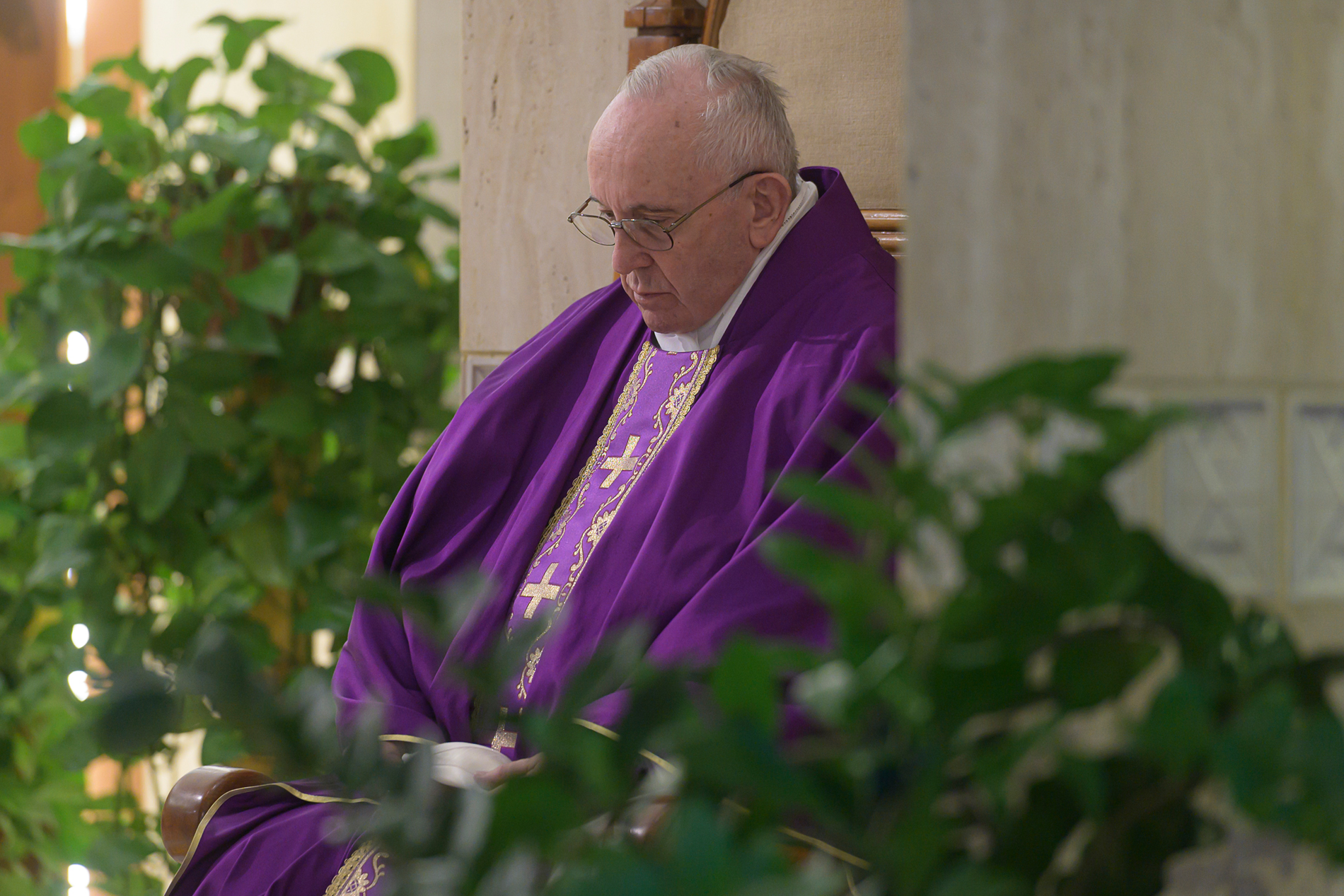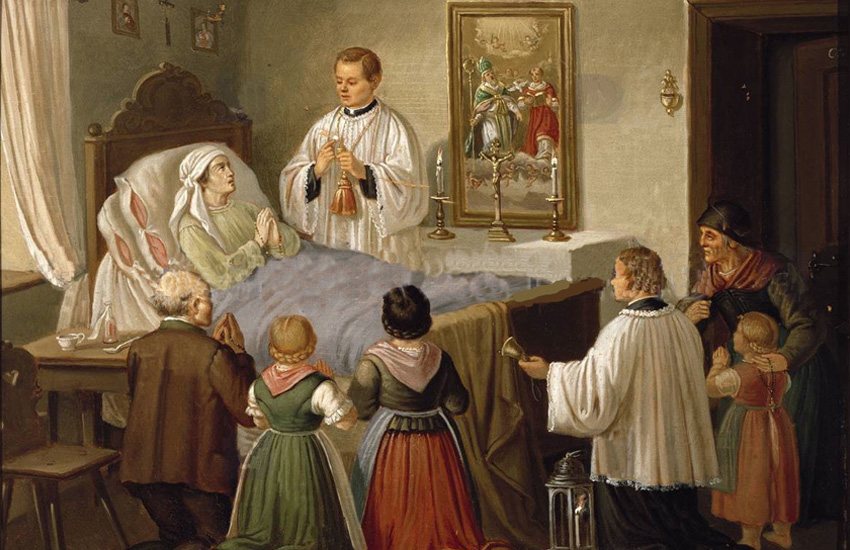
As usual, when something like a pandemic strikes, many non-believers will scornfully bash anyone who advocates prayer. They are so petty that even if a politician offers thoughts and prayers, they become upset and feel the need to voice their displeasure with this simple gesture.
I would like to talk a little about the purpose and effectiveness of prayer, and whether or not we should prayer in a time like this, i.e. during the Coronavirus (Covid19) pandemic.
In our modern world, we often have a sort of default materialistic attitude, even among believers. We view things through the lens of our temporal world. For example, when we think of prayer, we may think of gaining material possessions, or doing well on a test, or ending a pandemic. We see those types of things as our highest goals. I think part of this is due to the influence of our secular world on our thinking. Saints advise us that sin originates from three places: the world, the flesh, and the Devil. We are to be in the world but not of the world. Some go as far as to say we are to hate the world. This does not mean hating our neighbor or God, but rather putting the things of the world in its proper place which is well below God's proper place.
So the first thing to understand when it comes to prayer is the purpose of prayer, and more broadly our purpose in life. As a Christian people, we are not secular materialists. Rather, we are spiritual beings and our greatest good comes from having closer communion with God. It is part of our nature. God created us and as St. Augustine tells us, our hearts are restless until they rest in God.
Therefore, we must first get over the idea that the purpose of prayer is to achieve material or temporal success. I heard an excellent homily on the Sensus Fidelium Youtube channel where he discusses how to obtain anything through prayer. Much of what I will be saying in this blog post is inspired from this homily. You can find the video here.
In the talk, he says there are 3 conditions necessary for a prayer to be answered:
- Humility
- Confidence
- Perseverance
Humility, which is the opposite of pride, is probably the most important, and possibly rarest, virtue. It seems, for example, that those who bash prayer and its effectiveness are full of pride. Even if God were to grant their prayer, they would either not attribute it to God or they would just see him as a sort of cosmic slot machine. Put your coin in and you get a big payout. Repeat.
That's also how they deride believers. They mock God, just like some of the people at the foot of the cross. "Save yourself if you're really the son of God!" "Where's God now!" They demand that God obey their demands, and when he doesn't they act indignant, as if they were owed something from the Creator of the Universe. Obviously with such an attitude of entitlement and lack of humility, prayer will rarely be answered.
The second condition for effective prayer is confidence. We must believe that God can and will provide what we need in life, that he loves us and is there for us. St. Terese of Lisieux wanted always to be like a child in the eyes of God. She said as a child we believe our father can do anything. He will always be there for us and will never let us down. She said that's how we must be with God now as adults. Jesus Christ himself told us that unless we are like little children, we cannot enter the Kingdom of God.
The confidence of a child is what we must have in order for our prayers to be answered. We must trust that God loves us and does everything for our good. Sometimes a situation may seem hopeless, but with the trust of a child, we never lose hope. God will bring good from any evil if we allow him and fervently prayer for him to do so.
The third condition for prayer to be answered is perseverance. This is closely related to confidence. The example given in the video I linked is that found in a parable given by Jesus in which a man continually asks for bread from another man who is at first reluctant to provide it since he is already in bed and the door is locked. But the man who wants bread persists, and simply out of annoyance, the man in the house provides him bread. Jesus asks how much more will our Heavenly Father provide for our needs since he loves us more than we love ourselves?
Back to prayer and this pandemic. If we have all three of these characteristics when praying, we will find great advancement in the spiritual life. We will be given everything we could possibly ever need and become holier and closer to God. This is what we truly need. But God operates in other ways as well. He does provide miracles as has been shown countless times throughout history. He can help us with our material as well as spiritual needs. But we cannot approach him with an attitude of testing him or of pride. This attitude will only move us further from God, not closer.
I once heard a very interesting concept which was that if we were all holy saints on Earth, none of the earthly, material issues would be of any concern to us. We would offer up our sufferings to join more fully in the suffering of Christ who redeemed the world. We would not fear death and we would live joyfully. This is what God wants for us. We cannot reject the spiritual completely and just make materialistic demands on God. He would not provide that for us as it will only push us further away from him.
If you have anything to add, please do so in the comment section below. I really love hearing from you!









